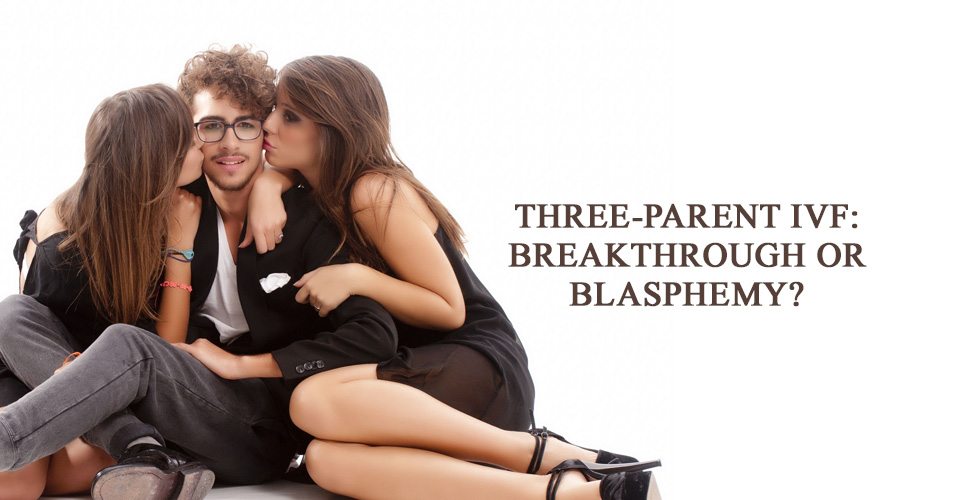
A year ago in the UK, it become legal to undertake three-parent IVF, which combines the DNA from three adults in order to prevent certain genetic problems in the resulting child. This practice has yet to be legalized in the United States, due to concerns that it might lead to widespread genetic engineering, or “designer babies”. However, this technology has the power to prevent children from being born with mitochondrial diseases – which are not only completely debilitating, but are also currently incurable.
Buy an “Intelligence is sexy” t-shirt!
The benefits of approving three-parent IVF are clear.
“There are currently no means to treat devastating mitochondrial diseases, which can cause muscle wastage, loss of vision, stroke-like episodes and a premature death,” says Robert Meadowcroft, chief executive of the Muscular Dystrophy Campaign. “Preventing inheritance, where possible, remains our only option, and that is why we have invested in and wholly support this pioneering technique.”
However, some worry that the legalization of this well-meaning technology will pave the way for less humanitarian uses of three-person IVF – namely, the creation of “designer babies“. The idea of parents being able to select the genetic traits that they pass on to their children is an intriguing one. It is also a very hotly debated topic in the field of bioethics.
Due to the emotional and controversial nature of this issue, Hollywood has weighed in as well. Movies like Gattaca, My Sister’s Keeper, and the Divergent series explore important questions regarding genetic engineering. What if gene selection, available only to the rich, creates an unfair class divide that effectively ruins our society? What if parents engineer their child to benefit themselves or a sibling, at great cost to the child’s own wellbeing? What if we make a mistake, and the genetically altered offspring lose vital traits – the very things that make us human? By doing this, would we be playing God? Would this be a good thing – or are people the way they are for a reason?
Ultimately, the debate lies in where we draw the line. Using three-parent IVF to prevent debilitating and incurable diseases seems like a no-brainer. Each parent should have the right to produce a healthy child, after all. What constitutes “healthy”, though? If parents can opt to avoid muscular dystrophy in their offspring, should they also be allowed to prevent autism? Depression? A low IQ? An average IQ? An inclination toward obesity? A large, unattractive nose? Unmanageable hair? Mediocrity in general? At what point do we cross the line from preventing a disability to getting rid of the very things that make us who we are?
As is evident from this article, there are more questions than answers when it comes to the bioethics surrounding genetic engineering. You may have an idea of where you think society ought to draw the line – but would a mother who has lost seven children to mitochondrial disease agree with you? Would a woman who has been teased her whole life for her ugly nose? Would your priest? As the technology involved in genetic engineering advances, this debate is sure to heat up as well. Where do you stand?


